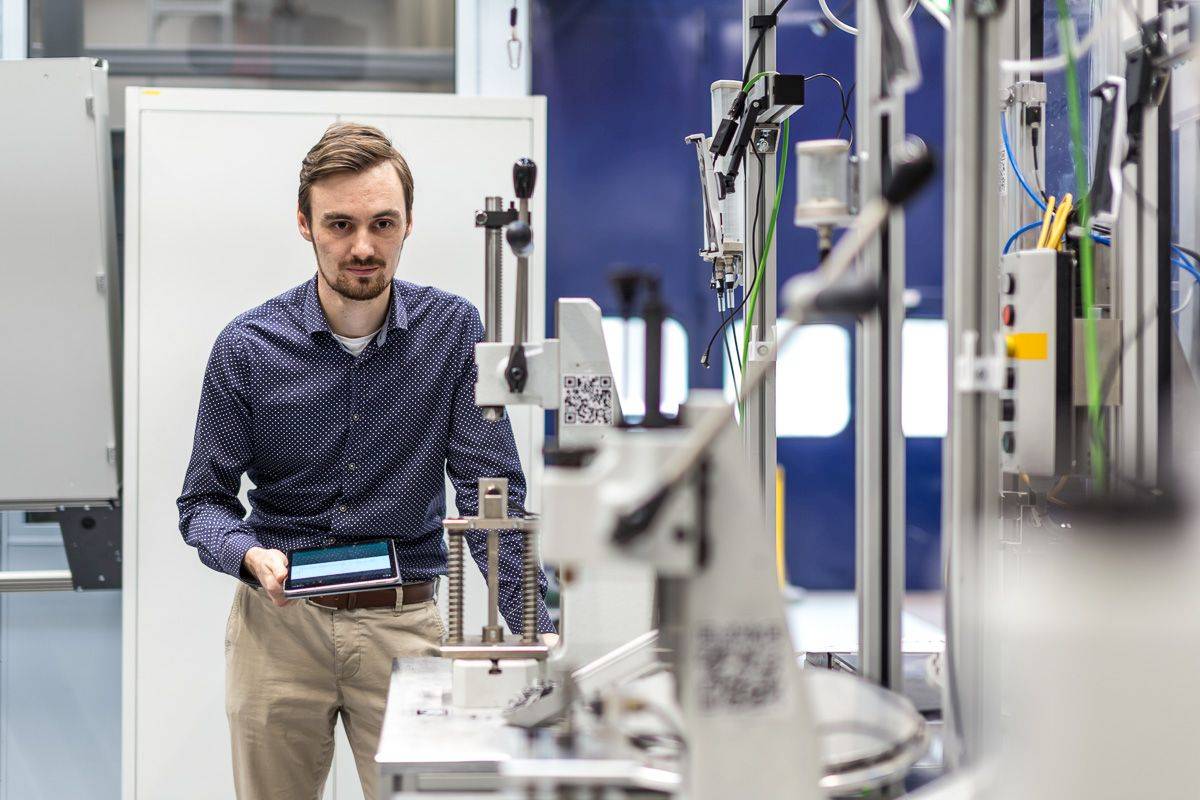Humans at the Center: Production in Industry 4.0 Capable of Change
After the steam engine, conveyor belt, and computer, industry is now facing the fourth revolution: Digital networking of facilities enables companies to better adapt their products to the wishes of customers. This requires systems capable of change, which adapt to changing situations. A joint study published by Karlsruhe Institute of Technology (KIT), Leibniz Universität Hannover (LUH), and the National Academy of Science and Engineering (acatech) reveals, however, that capability of change crucially depends on the staff. Virtual-reality applications and “learning factories” can help the staff build up comprehensive system understanding. Results and best practices will be presented by acatech, KIT, and LUH on April 26, 2018 at the Hannover Messe.
Modern information and communication technologies, such as sensors or data communication systems, interconnect individual facilities at globally distributed locations to smart factories. Digitization and the technical solutions of Industry 4.0 enable companies to meet individual wishes of customers at the costs and within the terms usually encountered in large series production. “But this new flexibility does not only have advantages,” Gisela Lanza, Professor and Head of the wbk Institute of Production Science of KIT, says. “A larger diversity of products, shorter product lifecycles, and volatile demand lead to unforeseeable market changes to which the companies have to react.” To be successful and economically efficient in such a volatile environment, companies have to adapt their production systems and networks to market conditions at low cost and within shortest periods of time. Successful implementation of such a capability of change does not only depend on the technical aspects of facilities, Lanza explains. “Dynamic organization will only be successful, if the employees have the necessary competence and flexibility. The readiness to react to changes is an important aspect of the capability of change.” Hence, the study of KIT, LUH’s Institute of Production Systems and Logistics (IFA), and acatech focused on how companies can make humans the center of structures capable of change and how Industry 4.0 can help them doing this. The basis was a close exchange of experience with the representatives of industry, associations of employers and employees, politics, and science.
Full Text: Press Release 048/2018
wer, 26.04.2018

